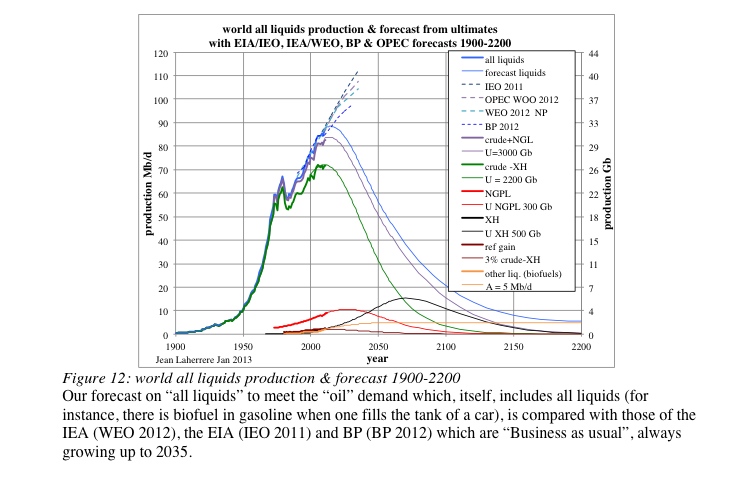We live in a world where scientific evidence is trashed by ideological opinion, where people who learn from experience are accused of being flip-floppers, where changing one's mind on the basis of new data is seen as admitting one's lack of moral fiber. The debate on peak oil is no exception and the recent demise of "The Oil Drum" site has been often seen as an admission that the whole idea of peak oil was wrong from the beginning.
But what is happening exactly with peak oil and why so much fuss about it? The problem may be simply that the idea had too much success. Let's go back to 1998, when Colin Campbell and Jean Laherrere raised up again a problem that had been first noticed by Marion King Hubbert, in 1956. Oil depletion, Campbell and Laherrere surmised, will be gradual: production will go through a symmetric “bell shaped” curve that will show a peak when, approximately, half of the available resources will have been used up. According to this study, the peak, that Campbell later dubbed “peak oil,” would have occurred around 2005.
The pioneering work by Cambell and Laherrere gave rise to a whole scientific field that used similar methods to study oil depletion. Most of these these studies arrived to the conclusion that troubles with oil would start within the first decade of the 21st century, or perhaps a little later. It was a view of the future in stark contrast with the generally optimistic attitude of the oil industry up to recent times. Just as an example, in 1999 "The Economist" published an article titled "Drowning in Oil" predicting oil at under 10 dollars per barrel.
But the predictions based on the peak oil concept turned out to be spectacularly successful, at least within the unavoidable uncertainties involved. Oil production stopped its growth in 2004 and oil prices spiked up to almost 150 dollars per barrel in 2008; about a factor of 5 higher than the price that was considered normal in the early years of the decade (and more than 15 times higher than the 1999 predictions of “The Economist”). Today, oil prices remain high; in the range of 100 dollars per barrel. We aren't seeing a production decline, but certainly we are seeing evidence of serious problems for the oil industry to maintain production at constant levels. As things stand, it seems impossible that we could return to the stable growth trends and the relatively low prices that were the rule until about 10 years ago.
So, “peakers” won their bet with cornucopians. The predicted troubles have materialized and peakers were also able to approximately identify the timing of the crisis. But, not everything is well in the world of peak oil. The elegant and symmetric “bell shaped” curve at the basis of most peak oil models did not appear for the global production data. What we are seeing, instead, is a plateau or, at most, a slow increase, in large part generated by the use of the so-called “non-conventional resources”, from biofuels to shale oil. The expected decline is not appearing; at least for the time being.
resilience









